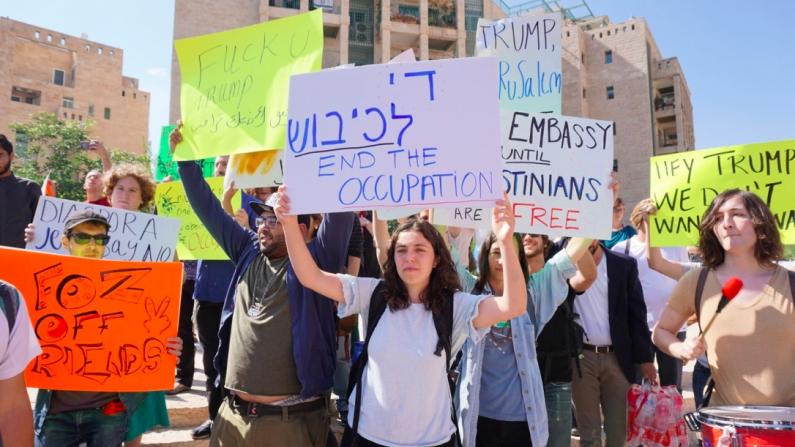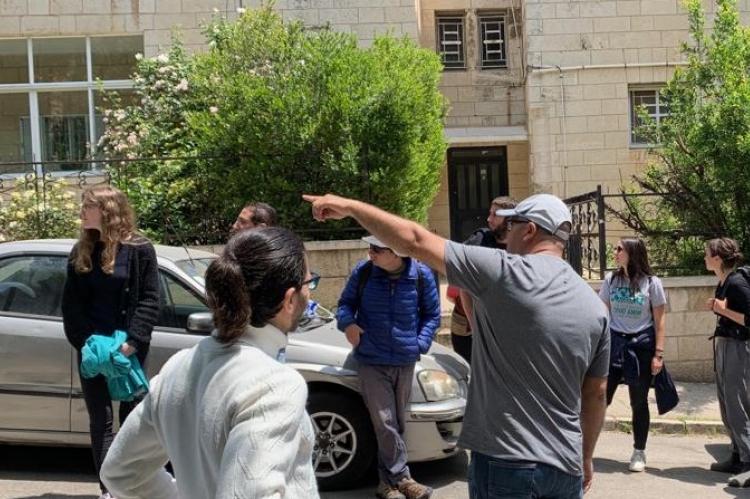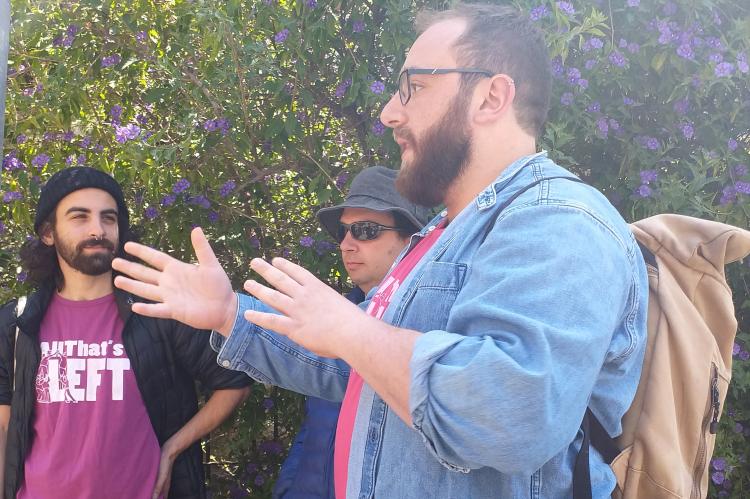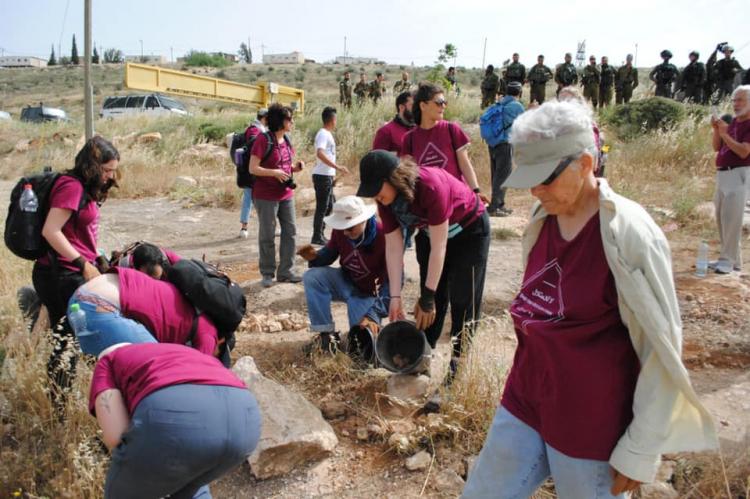
All That's Left's educational committee, known as the “Freedom School”, organized the tour together with Dr. Anwar Ben Badis the co-creator of the initiative 'Jerusalem, we are here'. It depicted the lives of people living in Katamon and Baka prior to 1948. Rafi, the organizer of the tour, said it is crucial for them to understand stories that they might have never been taught before.
After the tour forumZFD had a chance to ask Rafi a few questions to better understand how All That’s Left works together with its Palestinian partners. We also spoke to Maya Rosen, another member of All That’s Left when we met her a few days later at the meeting of the Civil Resistance and Partnerships committee. Both shared their personal perspectives with us, which do not necessarily reflect the views of the entire collective.
Raphael welcoming people at a tour through Katamon.
forumZFD: What kind of partnerships does All That's Left have? How do they develop?
Rafi: So, we have partnerships with people throughout the West Bank, South Hebron Hills, and with a few NGOs all around the country, both in the West Bank and in Israel, so we can make sure that we can maximize our advocacy. Some of us are Hebrew speakers, some of us are citizens, some of us are not, some of us are Palestinians, some of us Jews. Part of the beauty of this is that we can access a wide range of people. We were the first collective that we know who is doing Israel-Palestine activism under a broad umbrella: We accept Non-Zionists, Zionists, Anti-Zionists, Two-Staters, One-Staters, really everyone, as long as they agree with our sentence, which is:
All That’s Left is a collective unequivocally opposed to the occupation and committed to building the diaspora angle of resistance.
forumZFD: So how do you collaborate, what is important in how you make the cooperation? What does co-resistance mean for you, and for your partnerships…?
Maya (see first image): To me, co-resistance means that we’re working together to end the occupation, and that’s the basis on which we come together... When members of All That’s Left cooperate or work together with Palestinian partners, we make an effort, first of all, to ensure that the campaigns are chosen by and directed by our Palestinian partners who live on the ground, understand the reality the best, and who experience any potential repercussions. And so for our last big action in the West Bank, for example, there was a joint committee which was formed by representatives of the different Palestinian groups and villages and members of All That’s Left. That committee regularly went to the South Hebron Hills for joint meetings leading up to the action, to choose the action idea, to divide roles, to develop a joint media strategy etc, allowing us to work together cohesively to carry out the action.
Most partnerships in All That's Left are the outgrowth of relationships our members themselves hold. Members have very strong partnerships in the South Hebron Hills in particular, and doing an action that brought together different partners in that region to work on a joint project was something that was really meaningful and an important step forward in our work.
Palestinians and Jewish activists working together to repair a road that connects Palestinian villages to protest against the occupation.
forumZFD: Can you elaborate a little bit more on the action you mentioned?
Raphael: Yeah, absolutely. So, the action was done in collaboration with the Center for Jewish Nonviolence and a number of different Palestinian communities. We were rehabilitating a road to make sure that basics supplies were able to get back and forth so that people are able to live their daily lives without being so limited in their inability to mobilize and move. So we came together as a group, then a number of settlers came, then the army came, and from there it became quite violent, people were arrested, stun grenades were thrown into the crowd, all for the crime of trying to repair a road.
forumZFD: What do you think was the important, new, meaningful aspect of this action?
Maya: For me, it’s particularly exciting to see so many different partners working together. The occupation works by trying to divide us and purposefully makes it difficult for us to work together. Resisting this strategy feels like a really exciting step. I think that this past action we worked in ways that were really new for a lot of the partners involved, and I feel a lot of potential coming out of this. It felt important to work on a project with both symbolic importance and material importance, allowing us to come together to resist the attempts to depopulate the South Hebron Hills, which would lay the groundwork for annexation in these regions.



